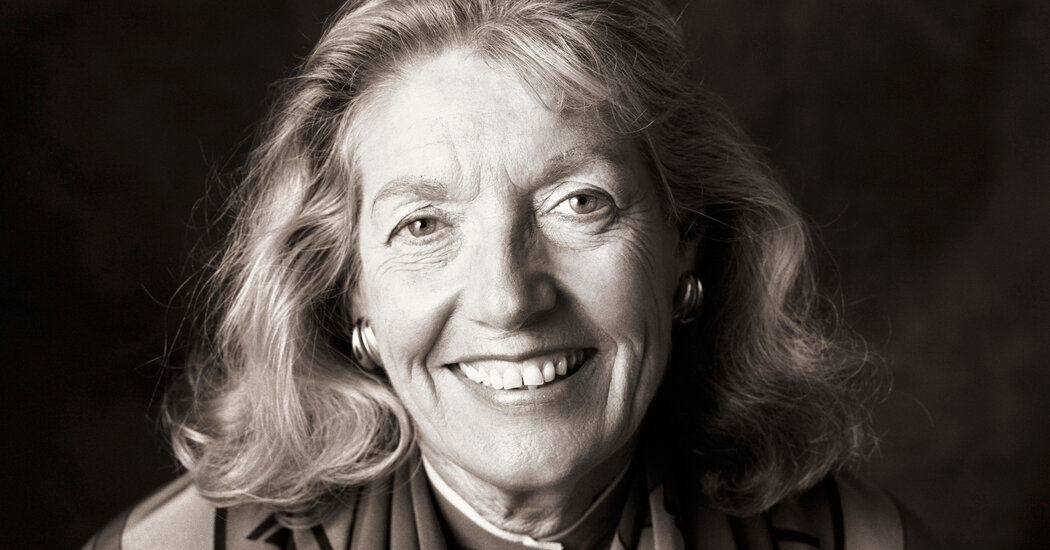
She graduated from the Clifton School, a girls’ high school, in 1950; worked as a telephone operator, saleswoman and hotel clerk; and married Carter Henderson, who wrote for The Wall Street Journal, in 1957, the same year she moved to New York. She became a naturalized citizen in 1962 and moved to Florida in the mid-1970s.
Her survivors include a daughter, Alexandra Leslie Camille Henderson, from that marriage, which ended in divorce in 1981, and a grandson.
In 1996, she shared the Boston Research Center’s Global Citizen Award with A. Pérez Esquivel of Argentina, who was awarded the Nobel Peace Prize in 1980. That same year she married Alan F. Kay, an internet pioneer who had founded a Wall Street computerized trading concern, and who underwrote her founding of Ethical Markets. Together they also started the Global Commission to Fund the United Nations. Mr. Kay died in 2016.
She wrote for The Harvard Business Review in the 1960s and ‘70s; was named “citizen of the year” by the New York County Medical Society in 1967; was a regents’ lecturer at the University of California, Santa Barbara; held a chair in conservation at the University of California, Berkeley; and advised the U.S. Office of Technology Assessment, the National Academy of Engineering and the National Science Foundation.
She remained self-employed, she told The Tampa Bay Tribune in 2005, because “I would have been fired off any job for insubordination.”
Like that of many futurists, her success was based on savvy intuition. It was also based in part on the fact that either so much time had elapsed that most people had forgotten what she once predicted, or it hadn’t happened yet.
In 1982, for example, she was asked by The Times to forecast what the millennium would look like.
“You will definitely see this returning to a more human scale society,” Ms, Henderson said. “It will be more efficient and do things locally. It won’t make sense to buy Wonder Bread baked in Illinois. In the future, we will share capital goods like lawn mowers and freezers and houses.”
Was she wrong about any of her predictions? “Only about timing,” Mr. Nader said. “She thought quicker than other people did, because she was an optimist.”
